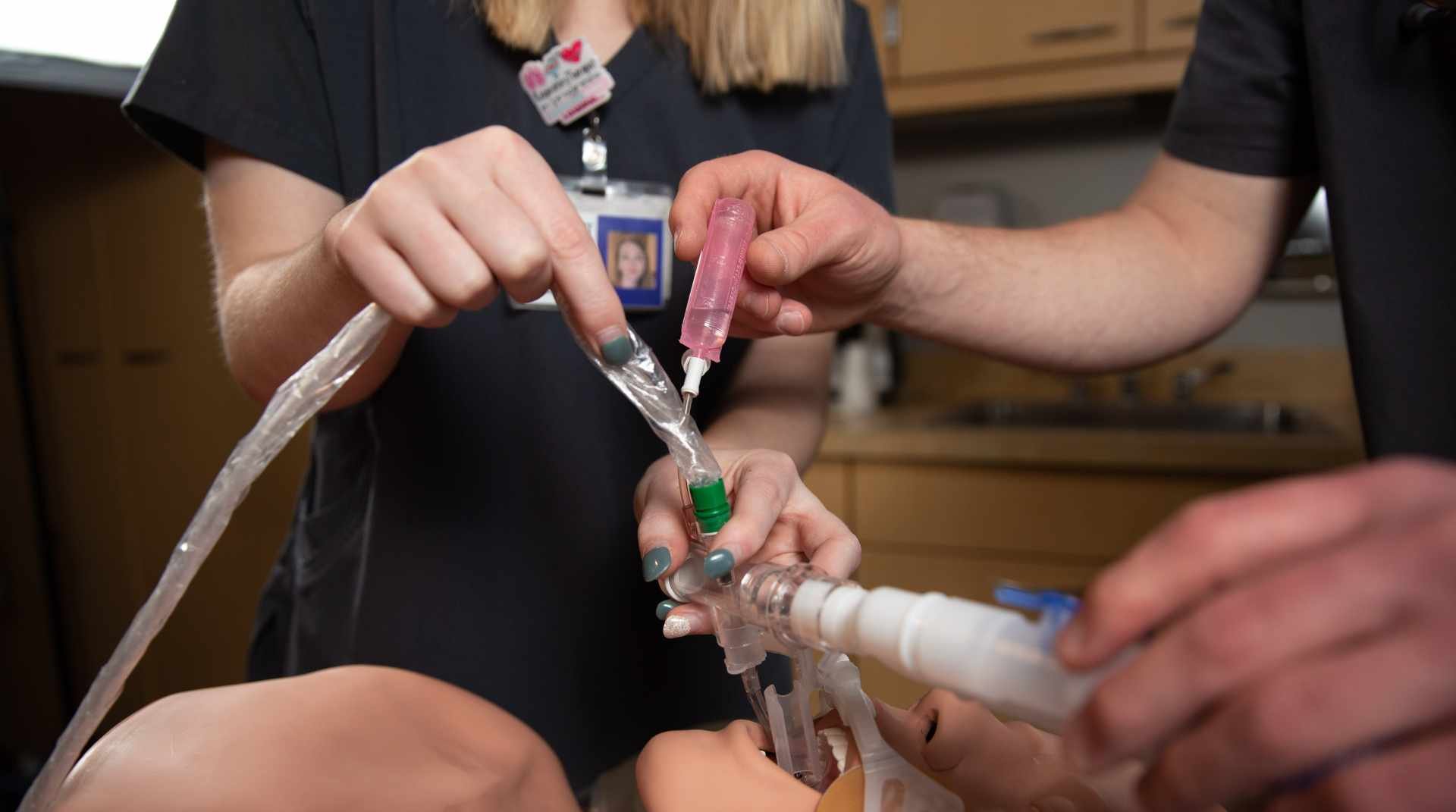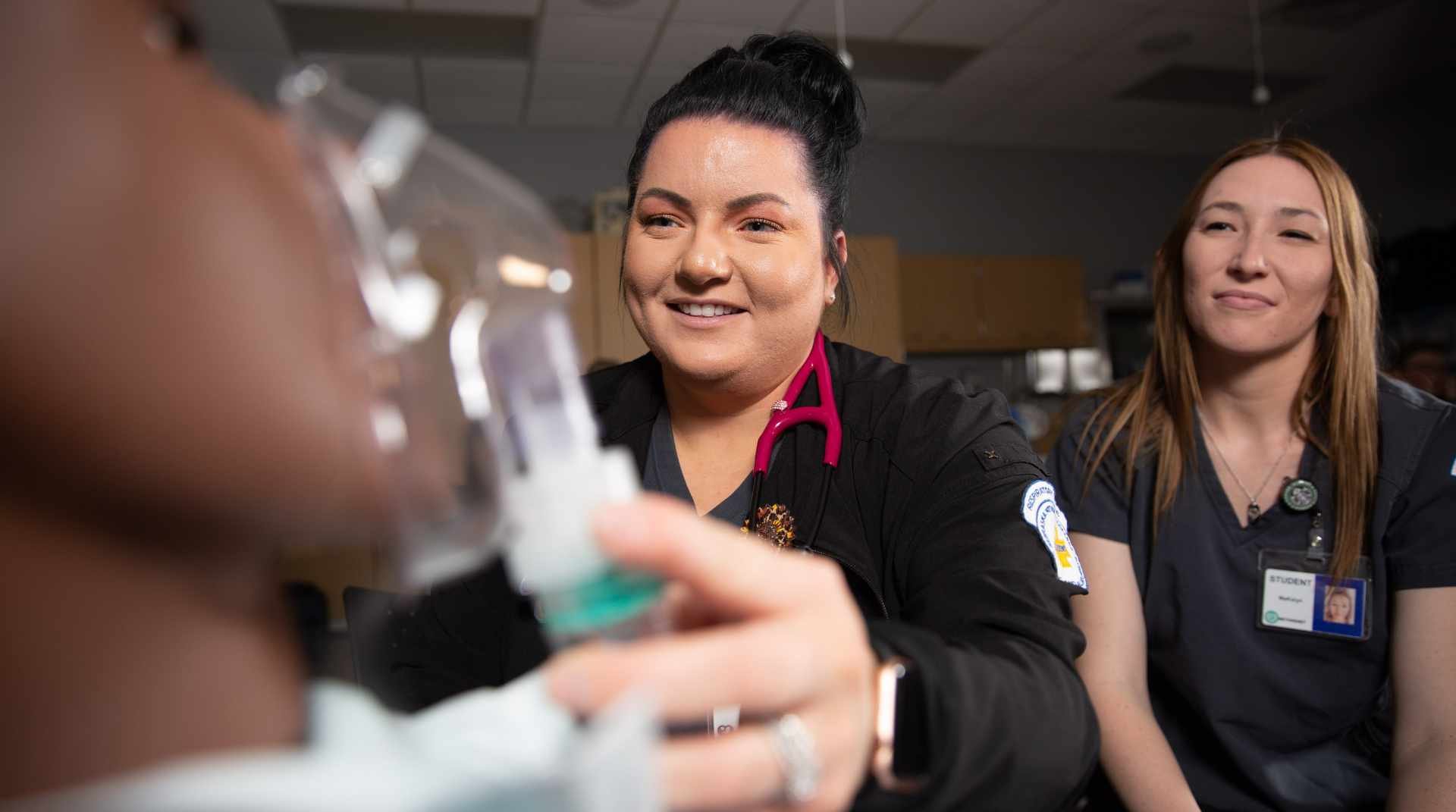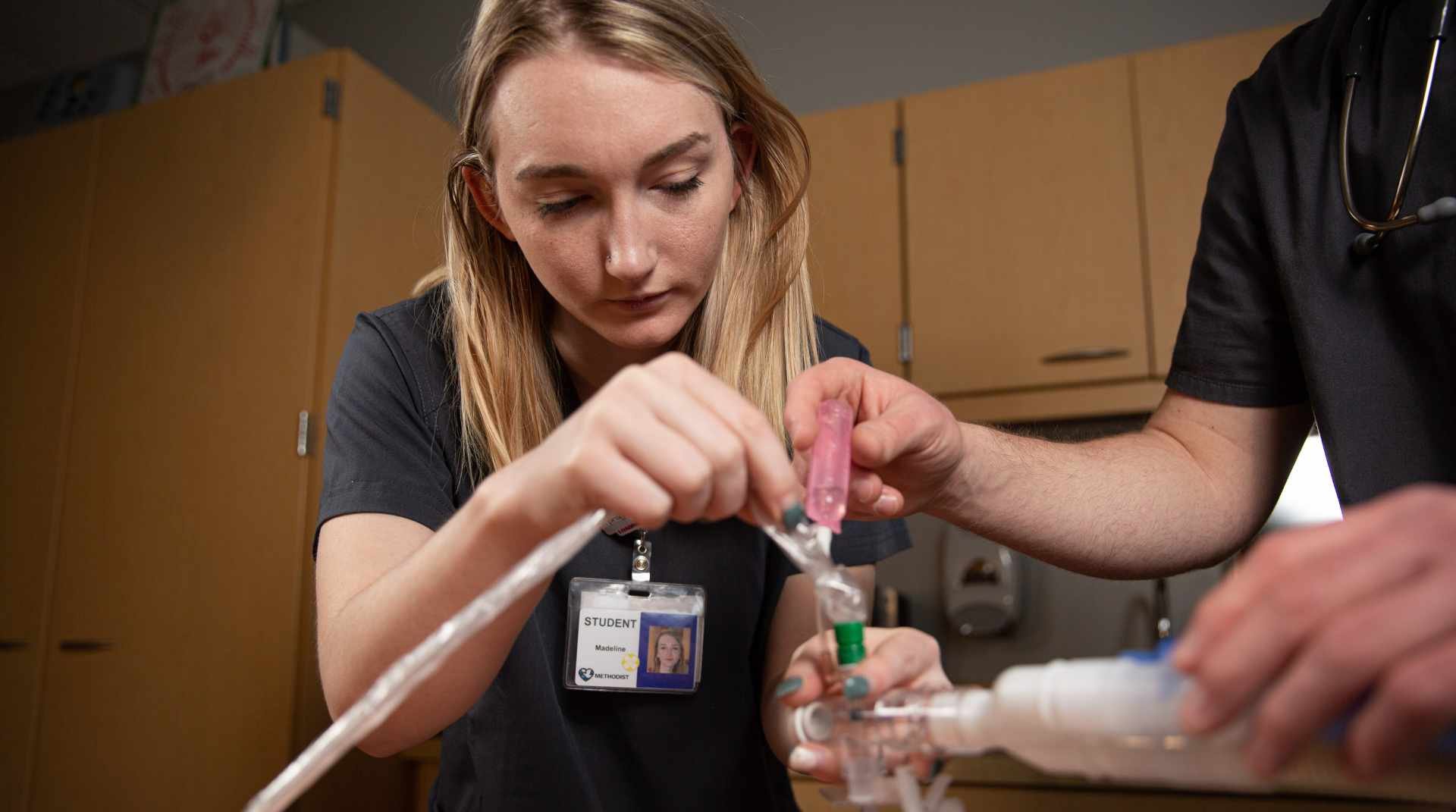 There’s a growing demand for respiratory therapists, and now is your chance to enter this popular career field.
There’s a growing demand for respiratory therapists, and now is your chance to enter this popular career field.
Getting a respiratory therapy degree allows you to gain the skills and knowledge you need to start your career.
Respiratory care will continue to grow in the next ten years, with the U.S. Bureau of Labor Statistics projecting 13% growth, which is faster than average for all occupations.
Why is respiratory care thriving? Discover the top reasons why a respiratory therapy degree will lead you to a career with stability and opportunities.
Read more: How to Choose the Best Respiratory Therapy Program For You
1. Environmental Impact on Respiratory Health
The impact of environmental changes on respiratory health is significant, and respiratory therapists are providing necessary care to patients suffering because of poor air quality.
As the atmosphere becomes more polluted, more and more people will experience a range of breathing problems as our bodies try to cope with poor air quality. Although society is making progress in terms of the consumption of fossil fuels, we still have a long way to go.
When air quality changes, so does respiratory capability, with asthma and other respiratory conditions becoming more prevalent. A respiratory therapist ensures that the proper care is given inside the hospital setting and education is provided to the community.
 2. Preventative Care in Respiratory Therapy
2. Preventative Care in Respiratory Therapy
There used to be a time when you wouldn’t report to a clinic for help until you had already experienced some type of breathing issue. Then, once it was corrected and things were brought back to normal, not much thought was given to the future.
Now, we as a society are more forward-thinking. The focus in the respiratory care community and in healthcare in general is to prevent problems from occurring in the first place.
After an initial diagnosis and treatment, the modern respiratory therapist will work with a patient to outline an educational prevention plan that will help reduce potential risks in the future. This may include medications, breathing exercises and routine checkups in order to avert more serious damage that could otherwise take place later on.
This prevention model has grown so popular that it’s become the focus of many bachelor’s-qualified Registered Respiratory Therapists (RRTs).
Nebraska Methodist College (NMC) offers a respiratory care degree completion option with the goal of providing the practicing RRT with even more extensive knowledge in order to better assist patients, influencing future behavior to provide the best level of care possible.
This is accomplished via wellness coaching that can motivate the patient to achieve success. The bachelor’s degree with respiratory therapy also includes courses on case management so the RRT can reinforce well-rounded care of the pulmonary patient.
3. Rising Concerns: Vaping and Respiratory Issues
Contrary to popular belief, vaping is not a healthy alternative to smoking. In fact, it might even cause harm in completely different ways.
Have you heard of popcorn lung? It compromises your airway and makes it harder to breathe, and if things get bad enough, you could die or be forced to seek a lung transplant.
Environmental Health Perspectives published a study out of Harvard that links the flavoring in e-cigarettes to the types of chemicals that could cause this condition. The more people vape, their risk of popcorn lung could go up. That means respiratory therapists may be needed to combat the issue.
Respiratory therapists play a crucial role in providing education about vaping and respiratory health, as well as diagnosing and treating patients who suffer from the effects of vaping.
4. Healthcare Coverage Expansion: Impact on Respiratory Care
The Affordable Care Act has had a dramatic influence on healthcare, and the world of respiratory therapy is not exempt.
The respiratory care field has grown dramatically in recent years due to the fact that more people are covered for treatment options, preventive or otherwise, than ever before.
Previously, a patient may have turned down regular check-ins with a respiratory therapist if they were not covered for that care. That’s even if he or she was presented with scenarios describing how, over time, this is the safest option. But now, with such care falling under the insurance umbrella, he or she is more likely to accept that advice and meet with an RRT regularly.
5. Changing Healthcare Payment Methods and Respiratory Services
The Affordable Care Act has created evolving payment models in healthcare.
Systems are being judged on their ability to keep a person out of the hospital after they leave. If he or she checks back in for an issue that wasn’t taken care of the first time, that hospital will receive a hit to its bottom line.
What does that mean for respiratory therapists? Referrals.
If there’s a good chance that sending a patient to a respiratory therapist for a series of check-ups will keep that individual out of the hospital for a more serious issue, you can bet that a doctor won’t hesitate to make that decision. And because the patient now has insurance coverage he or she never had before, they’ll be more likely to accept that referral.
It all comes back to prevention. It really cannot be overstated just how much healthcare is changing, and many respiratory therapists (and patients) are benefitting from preventative medicine.
6. Respiratory Therapy in an Aging Society
An aging population means more healthcare providers will be needed to offer care.
In general, the older you are, the higher your risk for respiratory issues, which means more people could end up suffering from respiratory issues.
There’s a need for respiratory therapists to help patients cope with the problems they’ll face as they age.
In addition to aging patients, there’s a critical shortage of respiratory therapists in the country, especially in rural areas in Nebraska.
To fill the demand for these healthcare workers in rural Nebraska, NMC offers programs that make getting degrees in respiratory therapy more accessible.
Through partnerships with Chadron State College (CSC) and the University of Nebraska at Kearney (UNK), and Hastings College, students can earn associate and bachelor’s degrees in respiratory therapy.
Students enrolled in the pre-respiratory therapy programs at CSC, UNK or Hastings College can apply to the respiratory care program at NMC.
In four years, they’ll graduate with an Associate of Science in Respiratory Care from NMC and a Bachelor of Science in Health Systems from CSC, a Bachelor of Science in Applied Health Sciences from UNK or a Bachelor of Arts in Applied Health Systems from Hastings College.
Students enrolled in the program are eligible for the NMC Steve Mendenhall, Registered Respiratory Therapy Memorial Scholarship, which provides a renewable award in the amount $5,000 for three semesters.
7. Addressing Sleep Disorders Through Respiratory Therapy
Sleep apnea occurs when an individual has their airway obstructed while they sleep. While it may sound like snoring, that gasping noise the person makes is actually their body jerking awake violently, the brain sending an alarm that it needs air.
This impedes proper rest and can lead to medical conditions. Because it’s a breathing issue, respiratory therapists are sometimes needed to help the patient. They can speak with the patient about potential options and offer guidance on CPAP, a machine that the sufferer wears in order to breathe easily while they sleep.

8. Emergence of Home-Based Respiratory Therapy
As the healthcare industry changes to meet the needs of patients, there’s a growing trend of home-based respiratory care.
Home respiratory care allows patients to receive the care they need to improve their quality of life.
Many patients with respiratory illnesses may need supplemental oxygen, long-term oxygen therapy, airway management or tracheostomy care or home ventilators.
With advances in portable technology and telehealth, home healthcare is becoming more prevalent.
Embracing the Future: Advances in Respiratory Therapy
Respiratory care is a more dynamic field than people give it credit for. For the reasons addressed, it’s clear that opportunities are there for anyone willing to devote themselves to this field of study.
Read more: Six Personality Traits of a Good Respiratory Therapist
As you explore your options for a respiratory therapy education and the career paths available, you’ll find many options and opportunities.
Interested in a career in respiratory therapy that's both rewarding and in high demand? Explore our NMC’s respiratory degree options to start your journey in this vital healthcare field. Connect with our admissions team today and take the first step toward a fulfilling future in respiratory therapy!

